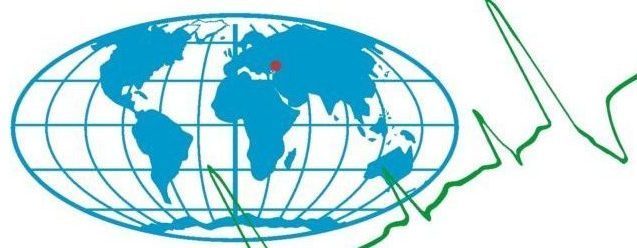A.V. Skatkov, Yu.V. Doronina, D.V. Moiseev
Sevastopol State University, Sevastopol, RF, Universitetskaya St., 33
E-mail: dmitriymoiseev@mail.ru
DOI: 10.33075/2220-5861-2022-2-92-100
UDC 519.8
Abstract:
The article focuses on clarifying the terminology of environmental control systems based on the concept of idempotence as a property of repeatability and predictability of the monitoring result; the definition of an idempotent environmental control system is formulated. By idempotence, the authors understand the property of environmental control systems, when re—applied to the object of control, to give the same result (information product) as the first one. The feasibility of the information product property of environmental control systems – idempotence is part of the concept of Idempotent environmental control systems. The evaluation of the repeatability property is possible based on the analysis of the statistical stability of the information product of an idempotent environmental control system. The purpose of the article is to expand the concepts of environmental control systems, introduce a new class of idempotent environmental control systems and discuss system interactions in the information environment. The concept of the information environment control system as a component of the environmental control system is proposed. It is shown that on the basis of the presented generalized structural and functional scheme of an idempotent environmental control system, it is possible to form statistically stable solutions, and on the basis of estimates of the stability of the result to predict the required data volumes and statistically dependent variability of the environment (information, as part of the environment). A number of definitions concerning the clarification of the concepts of information environment control systems are proposed.
Keywords: information environment, environmental control system, information ecology.
To quote:
REFERENCES
- Gajskij V.A. Nadezhnost’ i tochnost’ sistem kontrolja prirodnoj sredy. Chast’ 3 (Reliability and accuracy of environmental control systems. Part 3). Sistemy kontrolja okruzhajushhej sredy, 2020, No. 4 (42), pp. 111–118. DOI: 10.33075/2220-5861-2020-4-111-118
- Jusupov R.M. and Shishkin V.M. Informacionnaja bezopasnost’, kiberbezopasnost’ i smezhnye ponjatija: cyber security vs informacionnoj bezopasnosti (Information security, cybersecurity and related concepts: cyber security vs information security). Informacionnoe protivodejstvie ugrozam terrorizma, 2013, Vol. 21, No. 21, pp. 27–35.
- Ohtilev M.Ju., Sokolov B.V.,and Jusupov R.M. Intellektual’nye tehnologii monitoringa i upravlenija strukturnoj dinamikoj slozhnyh tehnicheskih ob’ektov (Intelligent technologies for monitoring and controlling the structural dynamics of complex technical objects), Moscow: Nauka, 2006, 410 p.
- Rjabovaja V.O. and Doronina Ju.V. Metody restrukturizacii ciklicheskih system (Methods of restructuring cyclic systems. Monograph). Sevastopol’: SevGU, 2018, 200 p.
- Maslov V.P. and Kolokol’cov V.N. Idempotentnyj analiz i ego primenenie v optimal’nom upravlenii (Idempotent analysis and its application in optimal management), Moscow: Fizmatlit, 1994, 144 p.
- Litvinov G.L., Maslov V.P., and Shpiz G.B. Idempotentnyj funkcional’nyj analiz. Algebraicheskij podhod (Idempotent functional analysis. Algebraic approach). Matem. zametki, 2001, Vol. 69 (5), pp. 758–797.
- Jusupov R.M. and Zabolotskij V.P. Nauchno-metodologicheskie osnovy informatizacii: RAN (Scientific and methodological foundations of Informatization: RAS), Saint-Petersburg. in-t informatiki i avtomatizacii, Saint-Petersburg: Nauka, 2000, 456 p.
- Eremin A.L. Noogenez i teorija intellekta (Noogenesis and theory of intelligence). Krasnodar: SovKub, 2005, 356 p.
- Eremin A.L. Mirovoj razum: tehnicheskie harakteristiki i intellekt-tehnologiii (The world mind: technical characteristics and intelligence technologies) Materialy XVI Vserossijskoj nauchno-prakticheskoj konferencii ”Innovacionnye processy v vysshej shkole”. Krasnodar: KubGTU, 2010, pp. 187–189.
- Osipov V.Ju. and Jusupov R.M. Informacionnyj vandalizm, kriminal i terrorizm kak sovremennye ugrozy obshhestvu (Information vandalism, crime and terrorism as modern threats to society). Trudy SPIIRAN, 2009, Vol. 8, pp. 34–45.
- Parahonskij A.P. Informacionnaja jekologija. Uspehi sovremennogo estestvoznanija, 2011, No. 11, pp. 88–89. URL:https://natural-sciences.ru/ru/article/view?id=29154 (07.03.2022).
- Doronina Ju.V. and Malovik K.N. Vlijanie jekologichnosti informacionnoj sistemy na kachestvo zhizni (The impact of environmental friendliness of the information system on the quality of life). Kachestvo i zhizn’, 2018, No. 1 (17), pp. 70–77.
- Petrova E.V. Informacionnaja jekologija v cifrovoj srede (Information ecology in the digital environment). Jekonomicheskie i social’no-gumanitarnye issledovanija, 2019, No. 3 (23), pp. 103–108. doi:10.24151/2409-1073-2019-3-103-108
- Skatkov A.V., Balakireva I.A., and Shevchenko V.I. Tehnologii sistemotehnicheskih reshenij (Technologies of system engineering solutions), Moskwa: Izd-vo “Sputnik+”, 2016, 267 p.
- Skatkov A.V., Brjuhoveckij A.A., Moiseev D.V., and Shevchenko V.I. Ocenivanie sostojanij prirodno-tehnicheskih sistem na osnove dinamicheskoj klasterizacii (Assessment of the states of natural and technical systems based on dynamic clustering). Sistemy kontrolja okruzhajushhej sredy, 2020, No. 1 (39), pp. 135–144.
- Doronina Ju.V. and Skatkov A.V. Osobennosti kvalimetricheskogo analiza polimodel’nyh kompleksov s peremennoj topologiej pri issledovanii slozhnyh tehnicheskih sistem (Features of qualimetric analysis of polymodel complexes with variable topology in the study of complex technical systems). Vestnik. Tomskogo gos. un-ta. Upravlenie, vychislitel’naja tehnika i informatika, 2021, No. 56, pp. 49–58. DOI: 10.17223/19988605/56/6
![]()
